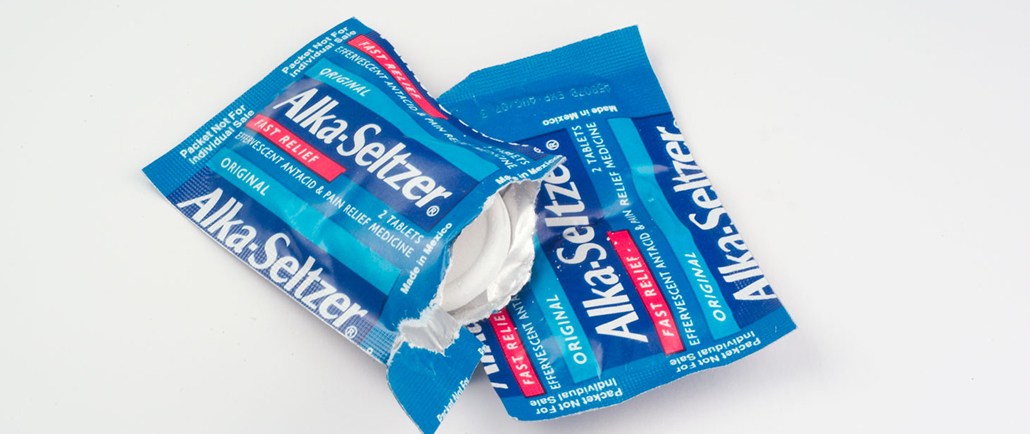Save 50% on a 3-month Digiday+ membership. Ends Dec 5.

The problem with great parties is they inevitably spawn really bad hangovers. Look no further than the current situation facing the first wave of ad tech companies to go public this year.
Tremor Video and YuMe enjoyed early success in the public markets after their respective IPOs this year, but the past week has seen their stock prices fall, and millions shaved off their market valuations. Rocket Fuel has fared better this week, although it is 32 percent off its peak after its IPO. According to analysts, the pounding headache and queasy stomach is going to last a while longer. Ad tech companies have been overvalued in the public markets, they say, thanks largely to a lack of understanding among investors of what they actually do.
“You’re going to continue to see a market correction; these prices are going lower,” said Sundeep Chanana, a director at investment bank Waller Capital Partners. “Some of these are good companies with good technology, but they received outsized valuations that need to be corrected.”
The Tremor Video stock price dropped 49 percent on Friday, for example, after the company announced weak earnings it attributed to its programmatic ad products. The Tremor results appeared to spook investors in Rocket Fuel, YuMe and Criteo, too. Prices for Rocket Fuel and YuMe dipped around 20 percent Friday. Rocket Fuel’s stock has since rebounded, but YuMe’s remains down. Criteo stock is now hovering around its $31 IPO price, after trading north of $35 on Friday.
Meanwhile, mobile ad company Millennial Media has seen its stock price fall consistently over the past 12 months, and mobile ad competitor Velti recently filed for bankruptcy after its shares traded at over $20 in 2011.
According to Brian Wieser, a senior research analyst at Pivotal Research Group, those shifts are indicative of an investor base that isn’t quite sure what its buying, or why. The online ad space is moving so rapidly that even those working in it have little idea what the next six or 12 months hold. Long-term value investors stand even less of a chance at an accurate prediction.
“Investors just don’t have a view into the competitive dynamics of the industry. They aren’t necessarily able to discern quality versus non-quality when it comes to evaluating these companies,” Wieser said.
Ad position: web_incontent_pos1
Chanana echoed that sentiment. “The guys investing in these companies are finance guys; they don’t know anything about the industry. They’re being told novel stories and making decisions on somewhat ignorant views and undeveloped valuation frameworks.”
The fact that Tremor’s earnings seemingly had a domino effect on the share price of companies like Criteo’s has been cited as evidence of this lack of understanding. The two companies have little in common, said Ari Paparo, head of media products for Bazaarvoice. That Criteo suffered because of Tremor’s performance, he said, suggests some investors may be uninformed.
“It’s apples and oranges. I can see why Tremor’s results might affect YuMe, but Criteo meeting headwind because of it points to a simplistic trading strategy,” said Paparo.
But perhaps companies that choose to go public in such a rapidly changing space should expect nothing less than equally erratic market valuations. According to Wieser, companies that go public earlier than they should will inevitably attract fickle investors who are happy hearing an interesting story and little else. It opens them up to investors with shorter time frames, which can artificially inflate prices.
That dynamic also presents an opportunity for hedge funds, of course, which are happy to bet on the stock prices of those companies falling.
Ad position: web_incontent_pos2
But according to Chanana, many ad tech companies — public or otherwise — remain overvalued. They might have “momentum,” he said, but many are essentially ad networks dressed up as technology companies. As Tremor’s experience has already demonstrated, investors are probably looking for more.
“There’s no reason these unprofitable companies should be valued at 20 times their revenues,” Chanana concluded. “You’ll see a further percentage decline in these share prices. They need to be corrected, and they will.”
UPDATE: The original version of this story incorrectly stated Rocket Fuel’s stock was down this week.
Image via Flickr
More in Media

What publishers are wishing for this holiday season: End AI scraping and determine AI-powered audience value
Publishers want a fair, structured, regulated AI environment and they also want to define what the next decade of audience metrics looks like.

Digiday+ Research Subscription Index 2025: Subscription strategies from Bloomberg, The New York Times, Vox and others
Digiday’s third annual Subscription Index examines and measures publishers’ subscription strategies to identify common approaches and key tactics among Bloomberg, The New York Times, Vox and others.

From lawsuits to lobbying: How publishers are fighting AI
We may be closing out 2025, but publishers aren’t retreating from the battle of AI search — some are escalating it, and they expect the fight to stretch deep into 2026.
Ad position: web_bfu